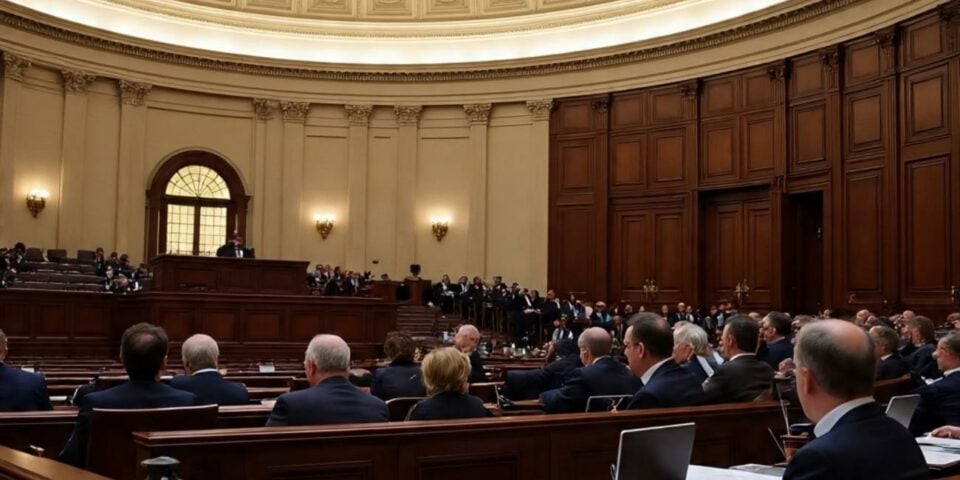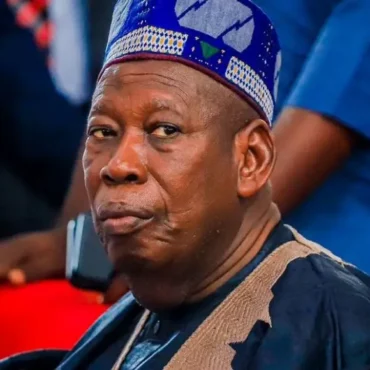The United States House of Representatives has introduced a new bill seeking to hold Nigerian government officials accountable for alleged violations of religious freedom and human rights in the country.
Titled the “Nigeria Religious Freedom Accountability Act of 2025,” the bill was sponsored by Republican lawmaker Marlin Stutzman from Indiana’s 3rd District and introduced on October 21, 2025.
According to details published on the official U.S. Congress website, the bill—filed as H.R. 5808 in the 119th Congress—has been referred to the House Committee on Foreign Affairs and the Committee on the Judiciary for further consideration. Both committees will review it within their respective jurisdictions before it proceeds to the House floor.
In Section 2(a) of the bill, lawmakers outlined its key objective, stating that “the President shall impose the sanctions described in Executive Order 13818… on persons involved in serious human rights abuse or corruption.”
Under Subsection (b)(1), the bill mandates that within 90 days of enactment—and annually thereafter—the U.S. Secretary of State must submit to Congress a detailed report listing Nigerian officials implicated in promoting or tolerating religious persecution.
The report is to identify:
-
Federal officials or state governors who have promoted, enacted, or maintained Nigeria’s blasphemy laws;
-
Those who have tolerated violence by non-state actors invoking religious justifications to commit acts of violence, including designated terrorist groups such as Boko Haram and ISIS-West Africa.
It also covers “judges, magistrates, prison officials, or other judicial or law enforcement authorities who have enforced blasphemy laws through prosecution, conviction, or imprisonment of individuals.”
The reporting period, as defined, covers the ten years preceding the bill’s enactment and continues annually thereafter, ensuring both past and ongoing violations are subject to review.
The legislation reinforces Nigeria’s redesignation as a “Country of Particular Concern (CPC)” under U.S. law—an action that subjects nations to potential sanctions for severe violations of religious freedom.
According to the text of the bill, the Secretary of State shall designate the Federal Republic of Nigeria as a CPC and Boko Haram and ISIS-West Africa as Entities of Particular Concern (EPC) for engaging in or tolerating systematic, ongoing, and egregious violations of religious freedom.
If passed, the law would compel the U.S. government to impose targeted sanctions—including visa restrictions and asset freezes—on Nigerian officials and entities accused of enabling religious persecution or turning a blind eye to faith-based violence.
This marks a significant escalation in Washington’s scrutiny of Nigeria’s human rights record.
Meanwhile, a similar measure—the Nigeria Religious Freedom Accountability Act of 2025—was introduced earlier in the U.S. Senate by Republican Senator Ted Cruz, which also designates Nigeria as a Country of Particular Concern.
That Senate bill proposes sanctions on public officials and religious authorities accused of promoting or tolerating violence against Christians and other religious minorities.
Under the Senate version, the U.S. Secretary of State would, within 90 days of passage, submit to Congress a list of Nigerian officials, including governors, judges, and traditional rulers, alleged to have “promoted, enacted, or maintained blasphemy laws” or “tolerated violence by non-state actors invoking religious justification.”
The proposed legislation also lists the Miyetti Allah Cattle Breeders Association of Nigeria and Miyetti Allah Kautal Hore among entities subject to potential U.S. sanctions, alongside the Fulani-Ethnic Militias operating in Benue and Plateau States, which may be designated as Entities of Particular Concern under the International Religious Freedom Act.
Representative Christopher Smith, who introduced another supporting resolution in the House, praised former U.S. President Donald Trump for redesignating Nigeria as a CPC, urging the Biden administration to maintain pressure on Nigeria over alleged persecution and human rights abuses.
If enacted, the House and Senate bills together could lead to the most comprehensive U.S. sanctions regime targeting Nigerian officials over religious freedom issues in the country’s history.






Post comments (0)